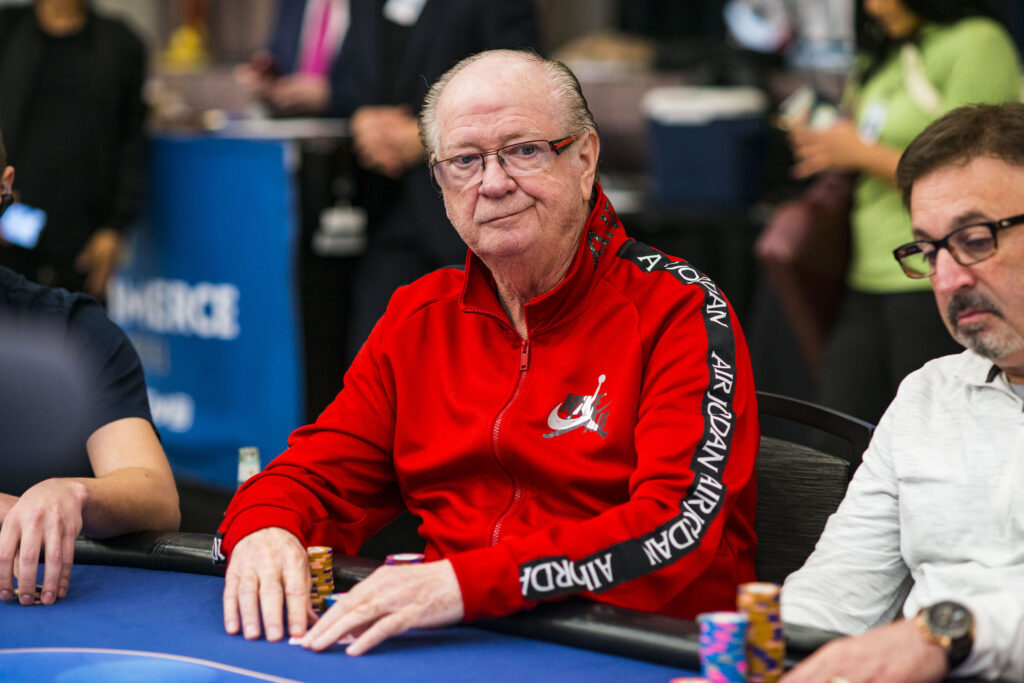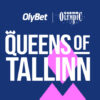
Billy Baxter
7
2
2006
Bio
Billy Baxter is a legendary figure in the poker world, renowned for his prowess in lowball and other non-hold’em games. Born on December 17, 1940, in Augusta, Georgia, Baxter’s career in poker has spanned almost five decades now, during which he has established himself as one of the greatest poker players of all time. His contributions and achievements in the game were recognized when he was inducted into the Poker Hall of Fame in 2006.
Baxter’s interest in gambling began at a young age. Growing up in Georgia, he was exposed to various forms of betting and quickly developed a knack for it. By the time he was in his twenties, Baxter had moved to Las Vegas, where he would make a name for himself on the poker’s biggest stage.
World Series of Poker
Billy Baxter’s biggest achievements came at the World Series of Poker (WSOP). Since his first participation in 1975, he has won seven coveted WSOP bracelets, all in draw formats. This accomplishment places him in the Top 10 bracelet winners of all time. His latest bracelet came in 2022 when Baxter triumphed in the $1,500 Razz event for $64,860.
Even in his 80s, Baxter regularly participates in the circuit and attends the series every year. In 2023, he narrowly missed winning his eighth WSOP bracelet after finishing runner-up in the $1,000 Seniors Championship, pocketing $473,212, his biggest cash to date. A potential win would have made him the oldest person ever to win a bracelet. The current record holder is Johnny Moss, who won his ninth bracelet 13 days before his 81st birthday.
Billy Baxter’s WSOP Bracelets
| Year | Event | Prize |
| 1975 | $1,000 No Limit Deuce to Seven Draw | $35,000 |
| 1978 | $10,000 No Limit Deuce to Seven Draw | $90,000 |
| 1982 | $10,000 No Limit Deuce to Seven Draw | $95,000 |
| 1982 | $2,500 No Limit Ace to Five Draw | $48,750 |
| 1987 | $5,000 No Limit Deuce to Seven Draw | $153,000 |
| 1993 | $5,000 No Limit Deuce to Seven Draw | $130,500 |
| 2002 | $1,500 Razz | $64,860 |
World Poker Tour
Outside of WSOP, Billy Baxter has also found success on the World Poker Tour (WPT). Although he hasn’t secured any official WPT titles to his name, some of his largest cash prizes come from the tour. In 2010, Baxter finished fifth in the $25,500 Championship Event at the Eighth Annual Five Star World Poker Classic, earning $246,921 for his efforts, which stands as his second-biggest career cash.
Baxter also has two wins in side events from the 2008 WPT World Championship in the $2,620 and $2,620 Seniors events, winning $149,755 and $138,990, respectively. His most recent six-figure score is from 2017 WPT L.A. Poker where he finished in third place, pocketing $173,580.

Billy Baxter’s Top 5 WPT Results
| Year | Event | Place | Prize |
| 2010 | $25,500 Eighth Annual Five Star World Poker Classic Championship Event | 5th | $246,921 |
| 2017 | $1,100 WPT L.A. Poker Classic | 3rd | $173,580 |
| 2008 | $2,620 WPT World Championship | 1st | $149,755 |
| 2008 | $2,620 WPT World Championship Seniors Event | 1st | $138,990 |
| 2004 | $10,000 WPT L.A. Poker Classic Championship | 8th | $75,630 |
Baxter v. United States
Billy Baxter’s influence on poker extends beyond the felt, notably through his involvement in the landmark case “Baxter v. United States.” In the late 1970s, Baxter found himself in a dispute with the Internal Revenue Service (IRS) over the classification of his poker winnings. The IRS considered Baxter’s winnings to be “unearned income,” which is typically subject to a higher tax rate than earned income. Baxter, however, argued that his poker earnings should be classified as “earned income” because poker was his profession, and he dedicated significant time and effort to it.
In 1986, the U.S. Tax Court ruled in favor of Baxter, agreeing that his poker winnings should indeed be classified as earned income. The court recognized that Baxter’s poker activities were not merely gambling but a professional endeavor requiring skill and dedication. This decision legitimized poker as a career and helped pave the way for the growth and acceptance of poker as a skill-based game.








